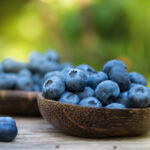Tariff increase on Chinese imports to raise input costs for U.S. farmers, says PMA rep

The recent tariff increase on Chinese imports will lead to higher input costs for U.S. farmers, according to the Produce Marketing Association (PMA).
At 12.01 a.m. on Friday the U.S. Administration raised tariffs on US$200 billion of Chinese imports from 10% to 25%, in what analysts say is a major escalation of the trade war between the world's two largest economies.
The value of Chinese goods imported into the U.S. in 2018 was US$539 billion, according to the US Census Bureau, and so the tariff rise affects almost half of total imports.
Speaking to FreshFruitPortal.com, Richard Owen, vice president of global membership & engagement at the PMA, said there could be several implications to the U.S. produce industry.
"For this round of tariff increases - which are really across the board on a number of Chinese imports - they're really going to affect farmers' input costs on a number of things, such as fertilizers and equipment," he said.
"Input products are sometimes mixed in with other things, but there are a lot of items that are included. If you think of the electronics that go into a lot of the farm equipment - technical equipment in particular -, if you think of inputs greenhouses if you're a vegetable producer ... that's an increase for farmers as well so it narrows the margins even further."
Potential retaliation
The effect of China's threatened retaliation on U.S. farmers is another important factor. The Chinese Government has not yet said what form this would take but has vowed to implement the “necessary countermeasures”.
Last year China increased tariffs on a large range of important U.S. fresh fruit imports, including table grapes, cherries, citrus and apples from 10% to 50%, effectively pricing many companies out of what had been a strong growth market.
"We don't know what the next round of retaliation could look like. It's possible that China would increase tariffs in retaliation even more," said Owen.
"For the products that have already been targeted, I don't know that it would do a lot more damage, but if they put it on additional products, there could be more impact," he said, explaining that there were still some U.S. fruit and vegetable products going into China that had not been affected by last year's tariff increase, mainly processed products.
Loss of market opportunity
However, he said that the longer-term issue for the U.S. produce industry is the ongoing loss of market opportunity, with many farmers having hoped that the trade war would be over by now.
"Every time you substitute products from one market to another market, you've got to fight to get those markets back. So the longer you're out of a market then the more you have to fight to come back in," he said.
"So the Chinese buyers are looking for products from other countries to fill that void, and the longer that happens or the longer the trade war continues then the market kind of shifts and readjusts with the reality."
Owen said that the overall mood in the U.S. produce industry was "frustration" of not knowing what the end goal is with this escalating trade war. There is also the sense that fruit and vegetable growers are getting "caught in the crossfire", he said.
But he was hopeful that both sides would reach a deal that could end the trade war and allow the countries to move forward.
















































